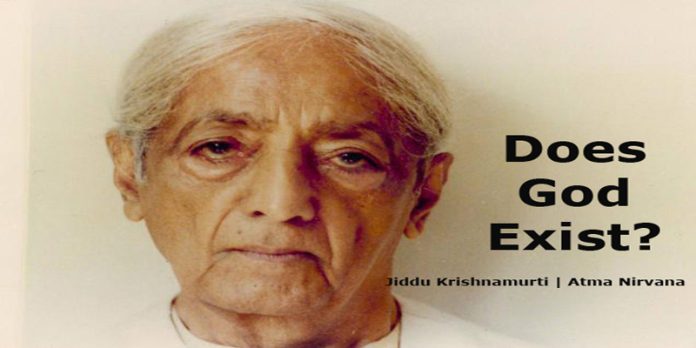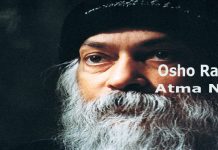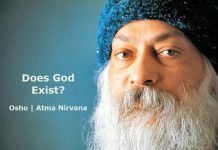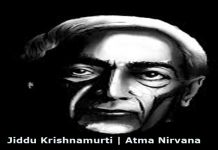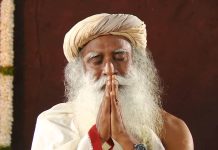Does God exist?
Does God exist, or not? Here is what Jiddu Krishnamurti says, in a Question & Answer Meeting in Madras, 1981-1982. The exact question is like this Does God exist, or not? Yes, or no? If yes, how best to realise him in this life?”
These videos are brought to you by the Krishnamurti Foundation of America and by the Krishnamurti Foundation Trust, UK. They maintain extensive archives of Krishnamurti’s original works and are actively engaged in the publication of material in various forms.
Krishnamurti’s Teachings On God- February 8, 1948
Talk in Bombay
Ideas cannot bring about transformation in the world. Ideas only create further ideas in opposition or in acceptance, which inevitably create separate groups and bring about conflict and misery. Ideas cannot fundamentally change man. They do affect his superficial life, modifying his actions and his outward relationships, but ideas do not radically transform his being. He either opposes them or accepts them and therefore isolates himself – which only creates further antagonism and strife. Only the state of being can bring about fundamental transformation. This state of being is not an idea or a mere formulation, but it comes when thought as ideas ceases.
The mind cannot solve our human problems. The mind can invent theories, systems, ideas; it can bring about different patterns of action; it can organize existence; it can invent and formulate. It cannot solve the human problem because the mind itself is the problem, and not the problem which it projects outside itself. The mind itself has become the problem, and its fabrications further complicate life, bringing conflict and misery. The substitution of one idea for another, or the change of ideas does not transform the thinker.
So, the thinker himself has become the problem. Thought can be modified, changed; but the thinker remains apart. The thinker is the thought. They are not separate, they are a joint phenomenon and not separate processes. The thinker, by manipulating, modifying, changing thought according to circumstances, safeguards himself by this action. The picture remains; only the frame is changed, but the picture is the problem and not the frame. Thought is not the problem, but the thinker. This action of modification, change, of his thought, is a clever deception on the part of the thinker, leading him to illusion and endless misunderstanding and conflict. So, only when the thinker ceases is there being, and it is only the state of being that can bring about radical transformation.
It is important to understand this – that ideas cannot transform man; modification of thought cannot bring about radical revolution. There is radical revolution only when the thinker comes to an end. When do you have creative moments, a sense of joy and beauty? Only when the thinker is absent, when the thought process comes to an end. Then, in the interval between two thoughts, is creative joy. Being alone can bring about transformation.
How to bring about an end to the thinker is our next question, but that very question is erroneous. For, it is still the thinker that is putting this question, thereby giving himself continuity. Only when the thinker is aware of his activities – then only the thinker comes to an end. With great beauty or in moments of great sorrow, the thinker is temporarily driven away, and within that period there is that extraordinary sense of infinite happiness and bliss. It is this creative moment that brings about enduring revolution. It is this state of being, in which the thinker is not, that gives renewal. In this silence when the thinker is absent, does reality come into being.
Questioner: Can one love truth without loving man? Can one love man without loving truth? What comes first?
Krishnamurti: Love comes first. To love truth, you must know truth. To know truth is to deny truth. What is known is not truth. What is known is already encased in time and ceases to be truth. Truth is an eternal movement, and so cannot be measured in words or in time. It cannot be held in the fist. You cannot love something which you do not know. But truth is not to be found in books, in images, in temples. It is to be found in action, in living.
The very search for the unknown is love itself, and you cannot search for the unknowable away from relationship. You cannot search for reality, or for what you will, in isolation. It comes into being only in relationship, only when there is right relationship between man and man. So, the love of man is the search for reality. In relationship only, I am beginning to know myself.
Relationship is the mirror in which I am discovering myself, not my higher self, but the whole total process of myself. The higher and the lower selves are still within the field of the mind. Without understanding the mind, the thinker, it is not possible to go beyond thought and be open to the real. So, the understanding of myself in relationship is the beginning of life. I do not know how to love you – you in whose relationship I come into being. How can I search for the real and therefore love the real? I cannot exist without you. I cannot be in isolation. In our relationship, between you and me, I am beginning to know myself, and the understanding of myself is the beginning of wisdom.
The search for the real is love in relationship. To love you, I must know you; I must be receptive to all your moods, changes, and not merely enclose myself in my ambitions, pursuits, and desires. Without you, I cannot be. If I do not understand this relationship, how can there be love? Without love, there is no search.
To say that one must love truth, one must know truth. Do you know truth? Do you know what reality is? Do you know what God is? To know is to encase it in memory. What is known is within the field of time, and so it is no longer truth. How can a dry heart know truth? It cannot.
Truth is not something distant. It is near, only we do not know how to search it out. To be open to it you must understand relationship, not only with man but with nature, with ideas. To understand there must be open communion; there cannot be an isolating process, a withholding. To understand, there must be love, and without love there can be no understanding.
So it is not man or truth that comes first, but love. It comes into being only in understanding relationship. Truth cannot be invited. It must come to you. To search for truth is to deny truth. It comes into being when you are open, when you are completely without any barrier, when the mind is no longer creating. It comes into being when the mind is still. This stillness is not the product of compulsion, repetition, or concentration. To induce stillness is to seek a reward, and truth is not a reward. Where there is search for reward and the avoidance of pain, truth is not.
Questioner: You cannot build a new world in the way you are doing it now. It is obvious that the method of training laboriously a few chosen disciples will not make any difference to humanity. No doubt you will leave a mark like Krishna, Buddhist Christ, Mohammed and Gandhiji. But they have not changed the world; nor will you, unless you discover an entirely new way of approaching the problem.
Krishnamurti: A few do free themselves from confusion, conflict, and sorrow, but the vast majority are held in the net of time and sorrow. Is it possible for each one to break through this net and be free? If they are not free, then the wave of destruction and chaos will always overcome the living. The questioner says that the past teachers have not set the vast majority of mankind free. Since they are not free, the wave of destruction and the wave of life are always together. The questioner wants to know if there is an entirely new way of approaching this problem.
The wave of misery is stronger than the wave of happiness; and if each one does not awaken, then the wave of destruction will be more powerful, and so man is doomed to strife and pain. The problem is, is it not possible for each one to step out of this net of strife and pain, out of this net of time? Can you, who are here, free yourselves immediately from sorrow? If you can, you will be able to help another to transform himself immediately. If you think that you will become free from sorrow, then you will never be free, for the becoming is part of this destructive wave. Either you understand now or never. The now is ever in the present and the present has no time. The present is also the tomorrow. The postponement of the now until tomorrow is not the present; it is the invitation to the wave of destruction.
As long as you think in terms of becoming or being something tomorrow, then it sets up the process of conflict and pain. Confusion exists because you are thinking in terms of becoming. Can this becoming come to an end? It is only then that there can be a radical transformation. Becoming is a process of time and being is free of time. Where there is the psychological process of time, there must also be the wave of destruction and misery. In being, only, can there be transformation and not in becoming. In ending, only, there is renewal and not in continuity. So, can each one of us stop thinking in the process of becoming? I say you can do it. You can do it only when there is profound interest, when the thought process ceases entirely.
It is the thinker that is ever striving to become. He is the creator of time. It is only when the thinker ceases that there is being. Only when you give your mind and heart entirely to understanding, then only truth comes into being – which alone liberates you from sorrow. Then only is there a radical transformation. You can step on to the shore from the river at any point. The river of becoming is destruction and sorrow. The river of becoming ceases when you understand the time process. But, to understand, you must give your heart and mind.
Questioner: When I listen to you, all seems clear and new. At home the old, dull restlessness asserts itself. What is wrong with me?
Krishnamurti: Existence is challenge and response. The challenge is always new and the response ever the old. You met me yesterday, but since yesterday I have been modified; you have the picture of me of yesterday; so the ‘me’ is absorbed into the old. You do not meet me anew. You have only the picture of me of yesterday. So, your response to challenge is ever conditioned. While you are listening to me, you forget temporarily all your anxieties, your strife, and pain. You are listening quietly, trying to understand. But, when you go away from here, you are back into the old pattern of life or action. The new is always being absorbed into the old – the old habits, customs, memories, and ideas.
So, the problem is how to free thought from the old, from yesterday, so as to live continuously in the new. Why is it that we do not meet the new afresh every minute? Why is it that the old absorbs the new and modifies it? Is it not because the thinker is always the old? Is not your thought founded on the past? When it meets the new, the past is meeting the present, the now. The experience of yesterday, the memory which is dead, is meeting the new, which is alive. So, how is the mind to free itself, as the thinker? How is the psychological accumulation to come to an end? Without freedom from the residue of experience, there can be no meeting of the new. To free the thought process, which is of yesterday, is arduous, for beliefs, tradition, and education are a process of imitation, building up the store of memory. This memory is constantly responding. This response we call thinking. So, thought can never meet the new. Thought is the outcome of incomplete experience. It is only when experience is completed without leaving a mark – then only, thought as a response to memory ceases.
Love is not memory. Love is not a process of thought. It is a state of being. Love is eternally new. To bring about a revolution in thought and feeling, every thought and feeling should be thought out from moment to moment. Every response must be fully understood, not casually looked at and thrown aside. There is freedom from accumulating memory when every thought and feeling is thought out and felt out completely to the end. In this ending, there is renewal. There is an interval between this ending and the arising of another thought. In this space of silence, creativeness comes into being. If you will experiment with your thought and feeling, you will discover the practicality of this in your daily life. You will discover for your self this creative interval, which is not of any theory or of any religion – it is a direct experience. If you cling to that experience it ceases to be the new, the eternal. This creativeness is happiness.
A happy man is not concerned whether he is rich or poor, to what caste he belongs, or to what country. He has no leaders, no temples, and no gods of promise or fear, so he lives in peace and does not cause enmity. You are not creative in the sense explained by me already, so you are antisocial at the different levels of your consciousness, so you breed strife, confusion, and antagonism. To be practical and effective in your relationships, you must be happy. There can be no happiness if there is no ending. There can be no happiness in continuity, in becoming. In ending there is a rebirth, a newness, a joy, an ecstasy. In becoming there is decay, strife, and pain.
Questioner: You never mention God. Has he no place in your teaching?
Krishnamurti: You talk a great deal about God, don’t you? Your books are full of it, you build churches and temples, you perform ceremonies. This pursuit of God indicates the shallowness of your search. Though you repeat the word God, your acts are not godly, are they? Though you worship God, your ways are ungodly. Though you mention God, you exploit others; and the richer you get, the more temples you build. So, you are only familiar with the word God. But, the word is not God, the word is not the thing.
 To find the real, all the verbal utterances of the mind must cease. The image of reality must cease for reality to be. For reality to be, the image and the temple must cease. For the being of the unknown, the mind must put aside its content, the known. To pursue God you must know God. To know what you are pursuing is not to know God. The response which urges you to pursue is born of memory, so what you seek is already created. That which is created is not eternal, it is a product of the mind.
To find the real, all the verbal utterances of the mind must cease. The image of reality must cease for reality to be. For reality to be, the image and the temple must cease. For the being of the unknown, the mind must put aside its content, the known. To pursue God you must know God. To know what you are pursuing is not to know God. The response which urges you to pursue is born of memory, so what you seek is already created. That which is created is not eternal, it is a product of the mind.
If there were no books, if there were no gurus, no rituals, and other forms of escape, all that you would know is sorrow and an occasional glimmer of happiness. Then you would want to know what is the cause of sorrow, then you would not escape through fanciful illusions. You may invent Gods and other things, but if you really wish to find out the whole process of suffering, then you will not escape, then you will have no addictions, then you will be faced with what is. Then only will you find out what reality is.
A man in sorrow cannot find reality. He must be free from sorrow to find it. That which is the unknown cannot be thought about. What you think about is already the known. You can think only of the known. Thought moves from the known to the known, from the secure to the secure, but what is known is not the real.
So when you think about God, you think about what is known, and the known is in the net of time. The real can only come into being when the mind ceases to create, when the mind is still. This stillness is not a product of compulsion, discipline, or self-hypnosis. There is silence only when all problems have ceased, like the pool that becomes quiet when the breezes stop. So, the mind becomes quiet when the agitator, the thinker, ceases. For the thinker to come to an end, all thoughts which he manufactures must be thought out. It is vain to erect a barrier against thought. Every thought must be felt out and understood. When the mind is still, the reality, the indescribable, comes into being. You cannot invite it. To invite it is to know it, and what is known is not the real. The mind must be simple, unburdened of ideation and belief. For reality to come into being, do not seek it, but understand the causes that agitate the mind and heart. When the creator of problems ceases, then there is tranquillity. In that tranquillity, the blessing of the real comes.
For more information about J. Krishnamurti and the Krishnamurti foundations:
International Site – http://www.jkrishnamurti.org/
Facebook – https://www.facebook.com/jk.krishnamurti
Twitter – https://twitter.com/orgKrishnamurti
Krishnamurti Foundation Trust, UK – http://www.kfoundation.org/
Krishnamurti Foundation of America – http://www.kfa.org/
Krishnamurti Foundation of India – http://www.kfionline.org/
Fundación Krishnamurti Latinoamericana – http://www.fkla.org/

























